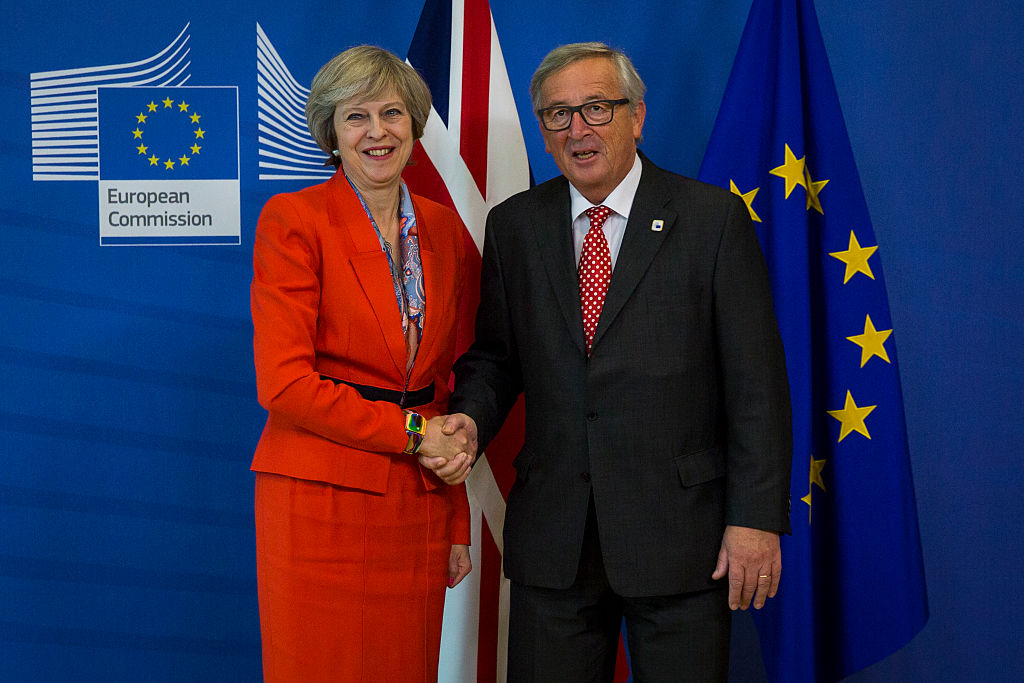Ruth Davidson has called into question the government’s pledge to bring net migration down to the ‘tens of thousands’. The Sun welcomes her comments and says that it is ‘good to hear a senior Tory…talk sense on immigration’. The migration target, according to the paper, is a ‘random, nonsense figure’ and achieving it would probably entail doing damage to the economy. It’s vital, of course, that immigration does come down, given that ‘some communities’ are struggling to cope with the influx of people. This shouldn’t mean doing damage to Britain’s businesses though, and the paper says it is high time for a ‘serious debate’ about the right level. But for those thinking the Sun is softening on immigration, the paper has a message: ‘Brexit was not about some rigid, low migration total it was about taking back control over the flow to suit our needs’. And end to free movement is the only way of achieving that, the paper concludes.
But whatever type of Brexit we end up with, the lack of clarity is already doing us damage, says the FT. The paper says that ‘the Bank of England’s Prudential Regulation Authority’ is the latest body to warn of the harm being done as a result of the current uncertainty. The Regulation Authority are not alone and across the board, says the FT, the message is the same: as long as there’s doubt about a smooth Brexit, ‘any business with significant cross-border exposure will have to assume the worst’. The scenarios warned of by the Authority – including a ‘a sharp economic downturn’ – are ‘far from hypothetical’, the paper says. And for businesses looking ahead to Brexit, ‘banks…and trading businesses’ ‘cannot afford to wait to see how the Brexit negotiations play out’. It takes time to establish a new EU base, says the paper. ‘If there is no guarantee of a formal deal on transition,’ the FT warns, the time for them to act is now. This is exactly why ‘ministers’ prevarication’ over a transition deal is so dangerous.
Meanwhile, the Times turns its attention to disagreements over the role of the European Court of Justice after Brexit. ‘Britain and Brussels’ are ‘sharply divided’ on the issue, the paper says: Theresa May has said the ECJ’s influence over UK law must end; while Brussels ‘maintains that the court must have oversight of large parts of the Brexit deal’. We need a ‘compromise’, says the Times – and the idea touted by Koen Lenaerts, the president of the European Court of Justice, that ‘a separate tribunal’ should be established needs ‘some serious thought’. As things stand, the ECJ plays a key role in ensuring that all members of the EU stick to the rules. ‘All that will fall away after Brexit’, the Times says – so, if there is a deal, we need a way of ensuring ‘each side is keeping to it’. It’s true that ministers have spoken of the need for an agreement but so far they ‘have said little about what it will be’. Reassuringly though, Britain ‘is not the first country to try to square this circle’, with the ‘Efta court’ – which is ‘technically independent’ from Brussels – governing law in the likes of ‘Norway, Liechtenstein and Iceland’. The big benefit of this option, points out the paper, is that the court already exists. This answer would also stay the right side of the PM’s red line – and ‘could also be acceptable to Brussels’, says the Times. ‘This would not put the issue to bed’, says the newspaper – but given the need to ‘compromise’, ‘the Efta court could be a good place to start.’.







Comments